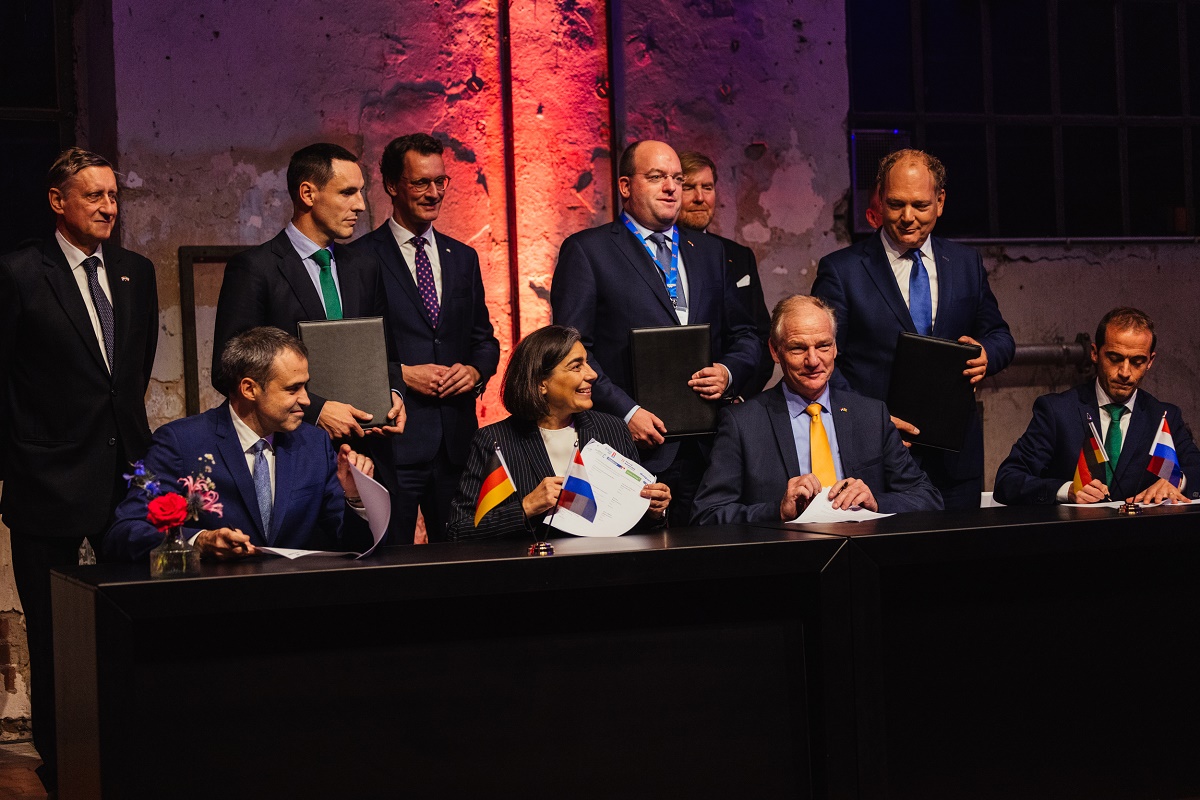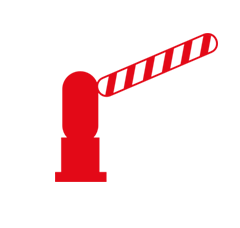Port of Bilbao, Port of Amsterdam and duisport, together with the Energy Agency of the Basque Government, Petronor, Evos Amsterdam and Zenith Energy Terminals, have signed a Memorandum of Understanding (MoU) to explore the development of an intra-European corridor for renewable hydrogen connecting end-to-end Spain, the Netherlands and Germany. The MoU follows the ambitions of the European Union to establish such intra-European corridors, with the Spanish, German and Dutch governments playing a prominent role in their realisation.
The MoU builds on an agreement concluded earlier this year between Bilbao and Amsterdam, with the specific aim of initiating a viable corridor that allows for Basque produced renewable hydrogen and hydrogen derivatives to be exported to the port of Amsterdam for local offtake. With the addition of duisport, this corridor can be extended, with port of Amsterdam transforming into the gateway to the German market, opening up the possibility to supply Basque hydrogen to the large industrial offtakers located in the Rhine-Ruhr region.
As part of their cooperation, the parties will focus on production of renewable hydrogen by Petronor in the Basque Country, identification of offtake potential and demand centres in Duisburg and its surrounding industrial regions, as well as an evaluation of transportation, storage and distribution methods to provide solutions to secure the supply of renewable hydrogen and its derivatives to the respective end-users.
The Memorandum of Understanding was signed by Andima Ormaetxe, Director Operations, Commercial and Logistics of Port of Bilbao; Markus Bangen, CEO of duisport; Aitor Arzuaga, Director General of Alba Emission Free Energy by Petronor; Iñigo Ansola, General Manager of EVE (Basque Energy Agency); Gert-Jan Nieuwenhuizen, Managing Director of Port of Amsterdam International; Ellen Ruhotas, Head of New Energies of Zenith Energy Terminals; and Bart van der Meer, Business Development Manager New Energies of EVOS Group.
Andima Ormaetxe, Director Operations, Commercial and Logistics of Port of Bilbao, said: “Port of Bilbao is one of the four ports ranked as first level by Spanish Ports National Institution, leading the environmental policies in Spain. Port of Bilbao is also a hub for short sea shipping, facilitating around 30% of trade between Spain and Europe. It is our aim to become carbon neutral by 2050 and therefore green corridors between Bilbao, the Netherlands and Germany are of importance to help decarbonize, not only the Basque Country Industry, but also other industrial regions within Europe.”
Duisport is Europe’s largest inland port and aims to become a European hydrogen hub, with a pioneering role in the utilisation of new energy sources for climate-neutral port and terminal operations. Markus Bangen, CEO of duisport, said: “By expanding this trusting cooperation, we are sending an important signal for cross-border collaboration: only by working together we can master global challenges such as the energy transition and quickly develop a Europe-wide hydrogen network. The aim is to work at full speed to make the transport chains

between the western ports noticeably more resilient and to optimize the infrastructure. In this way, the Port of Duisburg is not only further expanding its function as a central logistics hub for Europe, but is also strengthening industry in the Rhine-Ruhr region and in NRW as a whole.”
The ambition of Port of Amsterdam is to become, not only a key destination of imported renewable hydrogen and its derivatives, but also to serve as a transhipment hub to supply these to the German hinterland, mirroring the current role of the port of Amsterdam as a global energy hub. Dorine Bosman, Chief Investment Officer at Port of Amsterdam, stated: “As a partner, Port of Amsterdam is committed to contribute to the decarbonisation of industries within Europe. We believe that the development of these intra-European hydrogen corridors is essential. The port of Amsterdam has a key role to play as a conduit for hydrogen and e-fuels to the Rhine-Ruhr area. This supply is of vital strategic importance on a European level, which is why our shared focus with duisport on the resilience of the supply chain is crucial. This way, we can bring a corridor for hydrogen and e-fuels between a strong production region like the Basque Country and the port of Duisburg to life.”
During the act duisport and Port of Amsterdam signed a Joint Study Agreement (JSA) to conduct a detailed study on all aspects related to establishing a resilient supply chain for hydrogen between Amsterdam and the Rhine-Ruhr region
Both agreements were signed signed during the H2 Connecting Event in Duisburg in the presence of His Majesty the King of the Netherlands Willem-Alexander; State Secretary for Energy in the German Federal Ministry of Economic Affairs and Climate Action, Philipp Nimmermann; State Secretary for the Extractive Industries in the Dutch Ministry of Economic Affairs and Climate Change, Hans Vijlbrief; Prime Minister of the German state of North Rhine-Westphalia, Hendrik Wüst; and Deputy Premier and Minister for Economic Affairs, Industry, Climate Action and Energy of the State of North Rhine-Westphalia, Mona Neubaur, as official witnesses.

 Port access
Port access